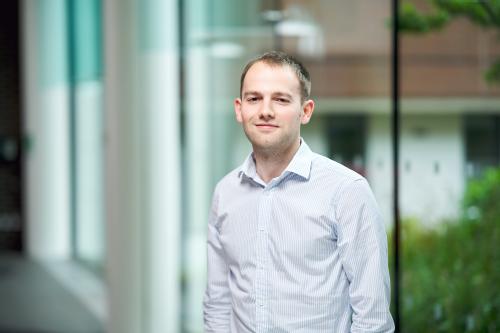Data Science News
Six papers accepted to the 32nd SODA conference
We are pleased to report that members of the department's Theory and Foundations research theme have had 6 papers accepted to the 32nd Annual ACM-SIAM Symposium on Discrete Algorithms. SODA is the top international conference on algorithms research. The papers are:
- "A Structural Theorem for Local Algorithms with Applications to Coding, Testing, and Privacy" by Marcel Dall'Agnol, Tom Gur, Oded Lachish;
- "On a combinatorial generation problem of Knuth" by Arturo Merino, Ondřej Mička, Torsten Mutze;
- "Dynamic Set Cover: Improved Amortized and Worst-Case Update Times" by Sayan Bhattacharya, Monika Henzinger, Danupon Nanongkai, Xiaowei Wu;
- "Online Edge Coloring Algorithms via the Nibble Method" by Sayan Bhattacharya, Fabrizio Grandoni, David Wajc;
- "FPT Approximation for FPT Problems" by Daniel Lokshtanov, Pranabendu Misra, M. S. Ramanujan, Saket Saurabh, Meirav Zehavi.
- "Polyhedral value iteration for discounted games and energy games" - Alexander Kozachinskiy
Adam Shephard joins the TIA lab

Adam Shephard has just joined the department as a Research Fellow and is currently working in the Tissue Image Analytics (TIA) Lab on the ANTICIPATE project funded by Cancer Research UK. He has recently submitted his thesis on the application of deep learning to paediatric MRI at Aston University, under the supervision of Prof. Amanda Wood and Dr. Jan Novak. His role in the ANTICIPATE project will be concerned with the development and application of deep learning techniques to digitized histology slides to aid in the more efficient grading of head and neck tumours, to ultimately provide more accurate patient prognoses.
Exoplanet Validation with Machine Learning: 50 new validated Kepler planets
Dr Theo Damoulas (Department of Computer Science) along with Dr David Armstrong (Department of Physics) and Jevgenij Gamper (Department of Mathematics) have developed probabilistic machine learning algorithms that can separate out real planets from fake ones in the large samples of thousands of candidates found by telescope missions such as NASA’s Kepler and TESS. The results of which have led to fifty new confirmed planets, the first to be not only ranked but also probabilistically validated by machine learning.
The paper "Exoplanet Validation with Machine Learning: 50 new validated Kepler planets" has been accepted to the Monthly Notice of the Royal Astronomical Society, DOI: 10.1093/mnras/staa2498
